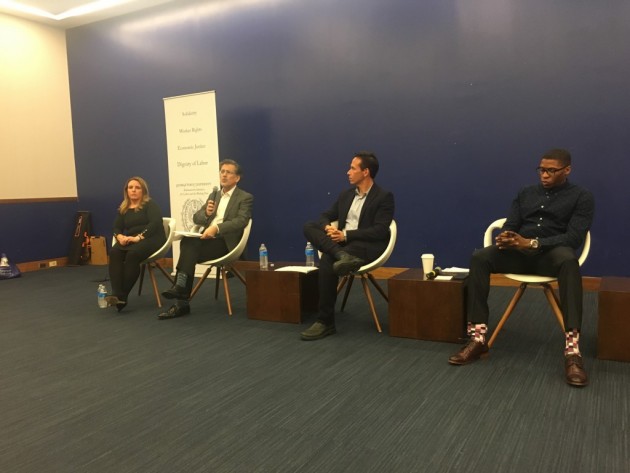Tennessee State University’s men’s basketball program will beallowed to participate in post-season games despite sanctionsimposed last fall by the National Collegiate Athletic Associationfor rules infractions, an NCAA official said.
The violations were not serious enough tojustify a post-season ban, said Shep Cooper, director of the NCAAInfractions Committee.
The penalties stemmed from such infractions asholding impermissible off-season practices in the GentryCenter, alocal YMCA; and providing recruiting inducements to at least 10prospective student-athletes in the 2000-01 and 2001-02 seasonsunder former head coach Nolan Richardson III.
The NCAA said the penalties were lenientbecause the athletic department imposed penalties on itself. Iteliminated one scholarship during the 2004-05 season, reduced to 10the number of expense-paid visits for prospective players for thisseason and next, and ensured that no coaches from last seasonremained employed by the athletic department.
Richardson’s assistants were HoseaLewis, who is the housing director at TennesseeState, and ChrisGraves, who coaches basketball at Columbia High in Columbia,Tenn.
“Having a chance to compete in the OVCand NCAA is great,” said Cyrus Alexander, new men’shead basketball coach, referring to the Ohio Valley Conference. Nothaving that opportunity “would have been a major setback anda killer to our program as it relates to the new coaching stafftrying to recruit good, quality players for the next threeseasons.”
Prospective players “wouldn’t havewanted to come to TSU and not be able to play in the NCAA.We’re fortunate and we’re happy. . . . We can tell theyoung men coming in that we can play in the post-season, if we aregood enough.”
NCAA officials said TennesseeState’scooperation was commendable and met the standard of what wasexpected of an NCAA member — but not so exemplary as to precludethe imposition of additional penalties.
Men’s basketball programs atCaliforniaStateUniversity at Fresno and the University ofCalifornia at Berkeley committed the same violations, yet bothschools were ineligible to participate in post-season play.
The NCAA’s Cooper said TennesseeState wasconsidered a “repeat” violator as a result ofviolations within the football program under former head coach L.C.Cole. Officials from that program appeared before NCAA’sinfractions committee in 1999 and it was placed on three years’probation.
Cole, head football coach atAlabamaStateUniversity, is again under investigation for similarviolations.
The infractions committee also determined thatRichardson ignored the principles of ethical conduct by knowinglyoperating TennesseeState’s basketball program contrary toNCAA legislation. The committee concluded that Richardson providedfalse and misleading information to TennesseeState and to the NCAAenforcement staff.
“When you are guilty, there is no reasonfor you not to say that you are,” said Teresa Phillips,director of athletics for TennesseeState since spring 2002.”Most of the punishments were self-imposed and we willcontinue to move forward. Although the punishments have an impact,it won’t hold the program down.”
The Tigers have not made a trip to the NCAAtournament since the 1993-94 season under head coach Frankie Allen.TennesseeState then finished 19-12 and 12-4 in the Ohio ValleyConference and lost 70-83 against KentuckyStateUniversity in thefirst round. Under Allen, the university made it to the OVCtournament during the 1998-99 season, losing 68-75 againstMiddleTennesseeStateUniversity.
Tamika L. Jefferson, a student atTennesseeStateUniversity, is sports editor of The Meter.


